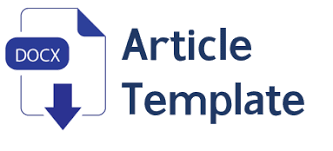A The Effect of Implementing Website Based Science Learning Media to Integrate Students Curiosity Material on Plant and Animal Reproduction Systems
-
Abstract
This research aims to determine the feasibility and effectiveness of a science website that integrates thinking about students' curiosity in the material on Plant and Animal Breeding Systems. This research is development research using a 4D development model with define, design, develop and disseminate stages. This research uses a pretest posttest control group design. IPA website feasibility research was carried out by material experts and media experts for product feasibility. The results of the feasibility assessment by material and media experts obtained a score of 0.9 for material and 0.8 for media with an average of 0.85 declared suitable and good for use in the learning process at school. The results of the normalized gain score for the experimental class were greater than the control class. The experimental class got a gain score of 0.76, which can be seen in Figure 2, where the results are included in the high category, while the control class got a gain score of 0.62, which can be seen in Figure 3, where the results are included in the medium category. The effectiveness of learning was carried out using the independent sample t-test, showing the results that the sig. is 0.007 (> 0.05), then Ho is rejected and Ha is accepted, so it can be concluded that there is a significant difference between the experimental class and the control class. The results of the research show that integrated website-based science learning media considers students' curiosity in the material on Plant and Animal Breeding Systems, apart from being developed and feasible and also effective in increasing students curiosity.
References
Dwianto, A., Wilujeng, I., Prasetyo, Z. K., & Suryadarma, I. G. P. (2017). The Development of Science Domain Based Learning Media Which is Integrated with Local Potention to Improve Science Process Skill and Scientific Attitude. Jurnal Pendidikan IPA Indonesia, 6(1). https://doi.org/10.15294/jpii.v6i1.7205
Erlina, N. (2021). Kesiapan Calon Guru IPA dalam Pengembangan Rencana Pembelajaran Berbasis Education for Sustainable Development. Jurnal Pendidikan dan Pembelajaran Sains Indonesia (JPPSI), 4(2), 142–150. https://doi.org/10.23887/jppsi.v4i2.39740
Fatkul Jannah, Wirawan Fadly, & Aristiawan, A. (2021). Analisis Karakter Rasa Ingin Tahu Siswa Pada Tema Struktur dan Fungsi Tumbuhan. Jurnal Tadris IPA Indonesia, 1(1), 1–16. https://doi.org/10.21154/jtii.v1i1.63
Hidayah, M. U., Lumowa, S. V. T., & Boleng, D. T. (2018). Developing the archaebacteria and eubacteria web-based learning media for high school students. JPBI (Jurnal Pendidikan Biologi Indonesia), 4(2), 179–188. https://doi.org/10.22219/jpbi.v4i2.5750
Latiifani, C., Rinanto, Y., & Marjono, M. (2016). PENERAPAN MODEL PEMBELAJARAN INKUIRI TERBIMBING UNTUK MENINGKATKAN RASA INGIN TAHU (CURIOSITY) SISWA KELAS X MIPA 2 SMA NEGERI 6 SURAKARTA TAHUN PELAJARAN 2015/2016. BIO-PEDAGOGI, 5(2), 1. https://doi.org/10.20961/bio-pedagogi.v5i2.5414
Nida, S., Rahayu, S., & Eilks, I. (2020). A Survey of Indonesian Science Teachers’ Experience and Perceptions toward Socio-Scientific Issues-Based Science Education. Education Sciences, 10(2), 39. https://doi.org/10.3390/educsci10020039
Nugraheni, A. R. E., & Dina, D. (2017). PENGARUH PENERAPAN PEMBELAJARAN E-LEARNING TERHADAP KEMANDIRIAN DAN MINAT BELAJAR MAHASISWA PADA MATA KULIAH WAWASAN DAN KAJIAN MIPA. EDUSAINS, 9(1). https://doi.org/10.15408/es.v9i1.5458
Peters-Burton, E., Rich, P. J., Kitsantas, A., Laclede, L., & Stehle, S. M. (2022). High School Science Teacher Use of Planning Tools to Integrate Computational Thinking. Journal of Science Teacher Education, 33(6), 598–620. https://doi.org/10.1080/1046560X.2021.1970088
Pluck, G., & Johnson, H. L. (2011). Stimulating curiosity to enhance learning.
Pritasari, A. C., & Jumadi, J. (2018). Development of Science Learning Tool Based on Problem Based Learning with Google Classroom to Improve Argumentation Skill. Biosaintifika: Journal of Biology & Biology Education, 10(2), 348–355. https://doi.org/10.15294/biosaintifika.v10i2.14320
Silmi, M., & Kusmarni, Y. (2017). MENUMBUHKAN KARAKTER RASA INGIN TAHU SISWA DALAM PEMBELAJARAN SEJARAH MELALUI MEDIA PUZZLE. FACTUM: Jurnal Sejarah dan Pendidikan Sejarah, 6(2). https://doi.org/10.17509/factum.v6i2.9980
Susanto, D. R., & Kiswantoro, A. (2020). STRATEGI PENGELOLAAN WISATA SUSUR SUNGAI MAHAKAM BERBASIS EKOWISATA DI SAMARINDA. Journal of Tourism and Economic, 3(1), 1–10. https://doi.org/10.36594/jtec.v3i1.49
Yulianti, D. (2017). Problem-Based Learning Model Used to Scientific Approach Based Worksheet for Physics to Develop Senior High School Students Characters. Journal of Physics: Conference Series, 824, 012009. https://doi.org/10.1088/1742-6596/824/1/012009



